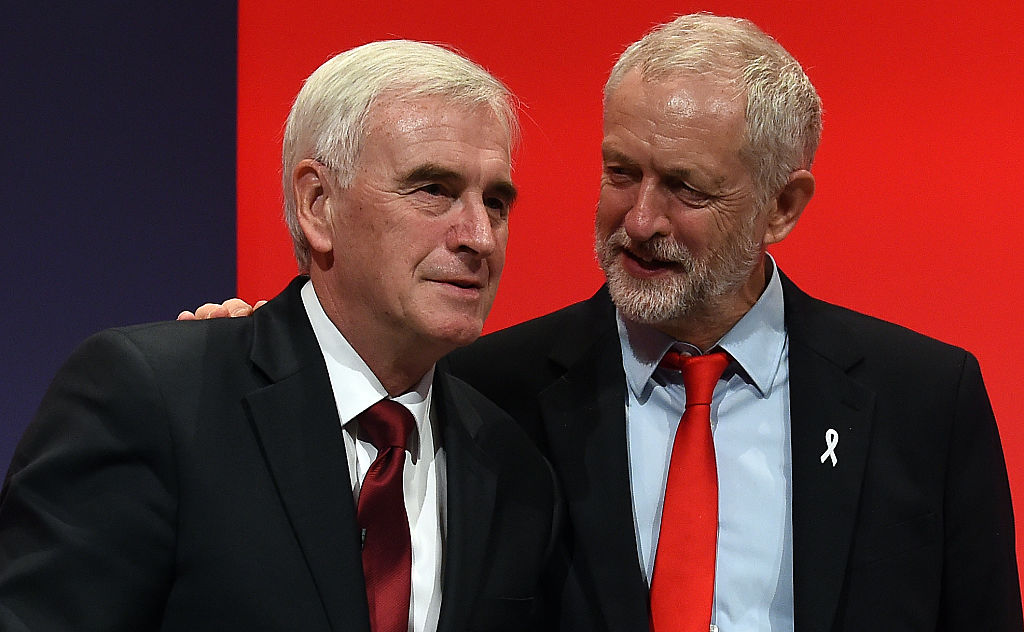What is Labour’s policy on Brexit? No one has ever really known the answer to this question, and it doesn’t seem to be any closer to being resolved now that the election is out of the way, either. Sir Keir Starmer yesterday attacked the government for ‘simply sweeping options off the table before they even started with the negotiations’, including saying Britain will not seek to be a member of the Single Market. But Jeremy Corbyn has said in the past few days that Brexit ‘absolutely’ means leaving the single market – a stance echoed by John McDonnell.
The party is now trying to work out how to unite after Thursday’s surprisingly good election defeat (though many of its leading lights are behaving as though they’ve had a surprisingly good election win). A lot of the uniting will involve former Corbynsceptics using various formulas of words to say how wrong they were about Corbyn’s ability to appeal to the electorate, without necessarily saying they now think he is a good thing for the Labour party in general, and Corbyn appointing the more palatable of his former critics to frontbench roles.
Corbyn today told the Commons that he was looking forward to this Parliament, ‘however short it may be’. If May does manage to get a government up and running with confidence that she will win votes on the Queen’s Speech, the Budget and so on, then this might not be until the Prime Minister has concluded the Brexit negotiations, at which point a new deal may become part of the next election campaign, whether intentionally or otherwise. And if that is the case, then the most important thing for Labour to unite around is its Brexit policy. Starmer and colleagues such as Yvette Cooper now believe that a ‘hard Brexit’ is off the table thanks to last week’s election result. They’ve been joined by the SNP, with the party’s Europe spokesman Stephen Gethins today insisting that the Tories ‘don’t have a mandate to continue their demands for an extreme Brexit’ and that the Prime Minister now needs to ‘start listening to the business community’s serious warnings that without retaining our place in the single market and the customs union, firms will be forced away from the UK’. Corbyn and McDonnell, meanwhile, seem to think that the political landscape has not changed sufficiently for them to start insisting on single market membership.
Either way, the party can’t afford to be in disarray on this matter anyway, but even less so if it becomes a key feature of the next election.







Comments